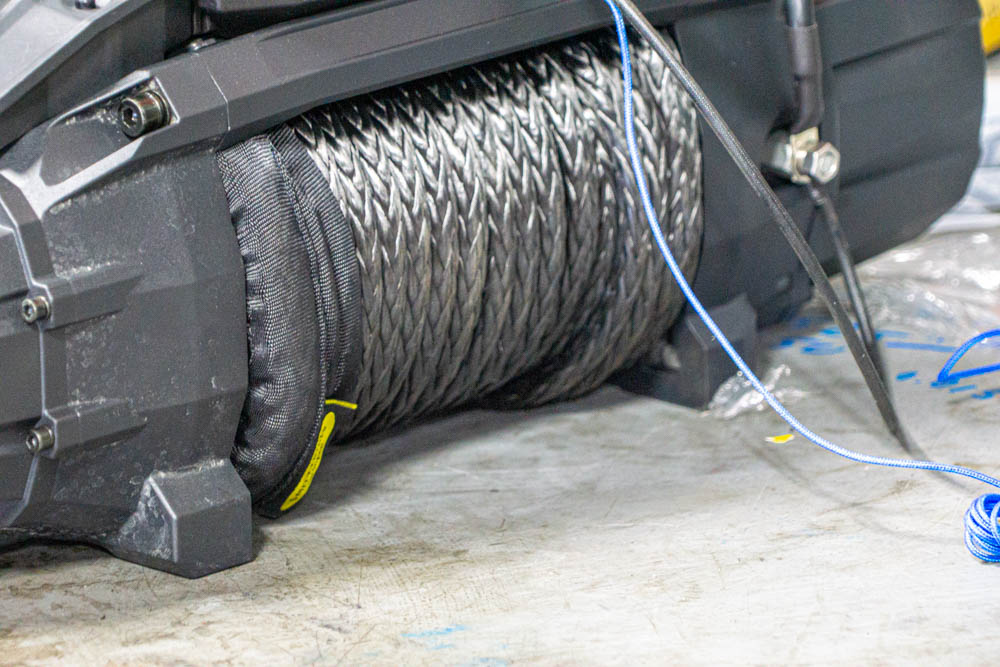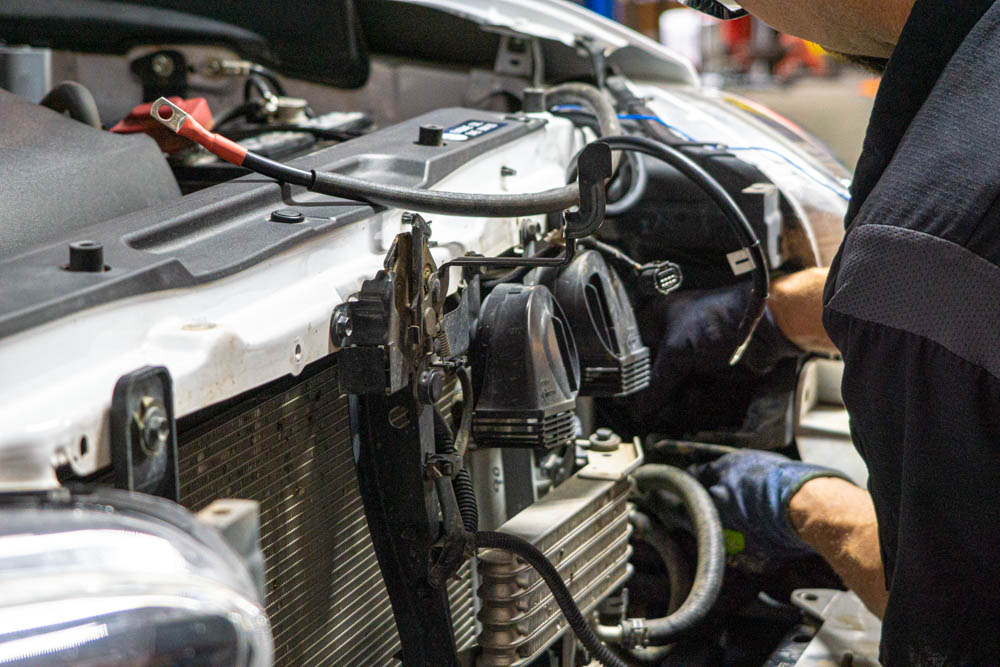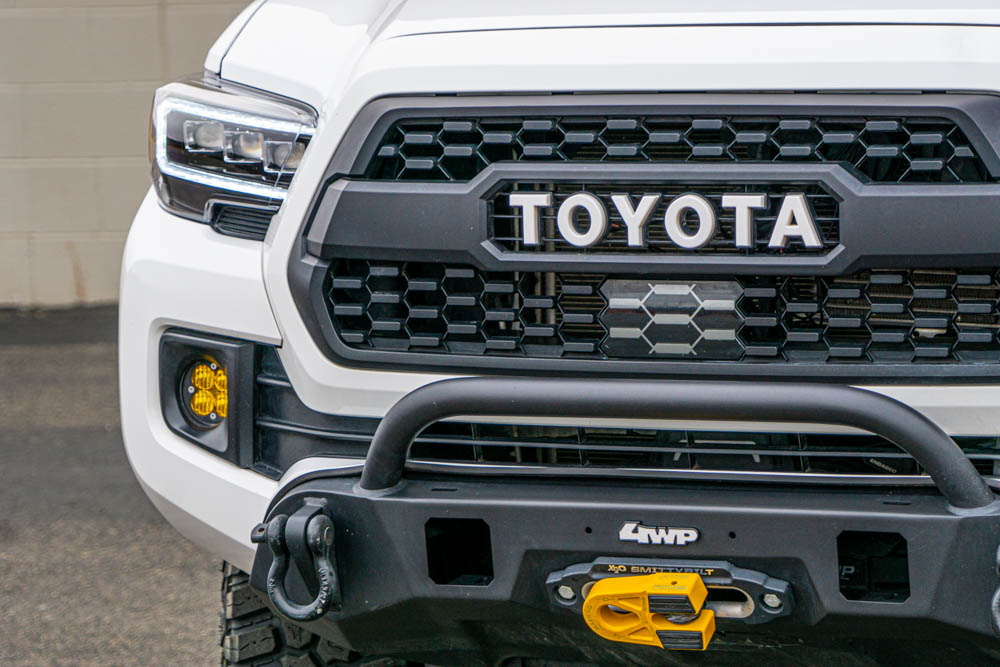Smittybilt X20 GEN3 10,000 Lb. Winch With Synthetic Rope, Forged Gears, Water/Dust Resistance – Install, Review & Overview
Since 1956, Smittybilt has been a staple in not only the offroad industry but also the recovery gear scene. One of the products they’re most known for are their winches. Smittybilt has been developing winches for longer than I’ve been alive and brings new and innovative features to the table every time. With their most recent X20 GEN3 winch, it’s by far their best winch ever made for a multitude of reasons. If you’ve been in the market, this winch should be at the top of your list!
Today we’re going to unbox, install and review our initial thoughts of this winch and its offerings. You’ll want to stick around for this one.
Let’s get started.
Find It Online
Winch Overview

Winches are an essential recovery tool when off-roading. They can almost always get you or another vehicle out of a sticky situation. If you aren’t familiar with what winches are or how they’re used, let me fill you in.
Winches are spooled line (usually a synthetic rope or steel cable) bound around a motorized drum with an associated remote used to retract or extend line. This allows you to pull vehicles and other heavy objects with ease as compared to traditional methods. Winches have greatly evolved over the years, especially with the modernization and safety of the off-roading industry.
Most higher-end winches today use synthetic lines that are safer and lighter than traditional steel cables.
Furthermore, winches are offered in different weight ratings that notate how much pulling weight the winch can handle. The majority of the lightweight trucks are commonly paired with a 10K or 12K winch and those are almost always plenty. Any weight rating larger than this is typically reserved for commercial or heavy-duty use.
Most companies also offer the option of either a wired or wireless winch remote. There are perks to both, so be sure to take that into consideration! We’re going to briefly discuss both of them down below.
Important: Before operating a winch, be sure to review best practices and safety guidelines as improper use can be fatal.
Specifications

- Waterproofing/Dustproofing: IP68 Rating
- Rated Line Pull: 10,000 LBS
- Motor (completely sealed): 7 HP
- Forged Gears
- Gear Train: 3-Stage Planetary
- Gear Ratio: 185:1
- Drum Size: 2.5″ Diameter
- Line Type & Length: Synthetic, 98.5′ 3/8″ Diameter
- Weight: 76 LBS
- Wireless Remote
Below we’ll highlight the specifics about the details this badass winch has to offer and see it in action!
Tools & Materials (for mounting)
- Assortment of sockets
- Assortment of crescent wrenches
- Needle nose pliers
- Vice grip pliers
Unboxing

After unboxing the winch, there’s a handful of smaller boxes and paperwork. These contain all of the hardware, etc.
Just like every install, getting organized beforehand is key. Take your time to make sure you have a proper plan of action that will help the installation go smoothly!
Step 1. Attach Cables + Insert Mounting Nuts

Connect all the supplied wires to the winch. Then slide in the nuts that will attach to the bolts that will mount the winch to your bumper.
It can be tricky to feed the nuts in as the winch line is in the way. Moving it out of the way as much as you can without completely unspooling the line is the best way to go about it.

The winch came with the positive cable preinstalled. All that needs to be done is to attach the negative cable to the rear designated spot on the winch.
Smittybilt provided extra leads to move the controller module if your bumper/winch mount won’t accommodate the module being in the center. The motor can also be rotated (clocked) if your setup requires it for easier clutch access.
Now would be the time to do so because once it’s on the truck, it’s going to be tougher to remove and reinstall everything.
Step 2. Mount Winch To Bumper

Every bumper is going to be slightly different when it comes to mounting a winch. However, they should all have a designated tray with slots for the winch to mount too.
I am mounting the winch to a 4WP Factory Front Bumper. The winch tray on it is super tight with the body lines of the bumper making it tedious to feed the bolts to the front bolt holes. Regardless of the bumper, this step will require patience. Be very careful as the winch is heavy!

Set the winch onto the tray and feed the bolts through their slots enough to hand tighten. Repeat on all four mounting points.
Step 3. Wiring The Winch

Wiring the winch to your rig is quite simple. Connect the positive, negative, and ground cables, and you’re golden!
One of the neat features of the X20 Gen 3 is the option to wire in a DRL on the controller module. This is a simple extra step but if the module is going to be hidden or you just don’t want to run the DRL, then the cable can be cut off or left disconnected.
Starting with the cable routing, going under the splash guard by the headlight there is a gap the cables can be fished through to reach the battery. Snug down the associated cables to both the positive and negatives of the battery terminals. Pretty simple.
Congrats! Your winch is all wired up and reach to put to work. Be sure to tidy up all cables and leads that maybe hanging out.
Features

The X20 is packed full of neat features that make this winch one of the best on the market, we’re going to take a closer look at them and discuss some differences between this winch and others!
Synthetic Vs. Steel Line

Synthetic Line
Around the 90’s synthetic line made a name for itself with the increased benefits compared to traditional steel.
To begin, the weight and maintenance for synthetic line is significantly less than steel. Furthermore, the safety aspect. If the synthetic line were to break (compared to steel), it doesn’t store as much energy. This means if it were to snap, there is potential for less harm to occur. Overall, synthetic line is more expensive but is more pliable when handling or manipulating. Not to mention the weight savings. Every pound can count in the bigger picture.
The X20 GEN3 comes standard with synthetic rope.
Steel Line
Steel has been the tried and true for as long as winches have been around. The strength of the cable on abrasive surfaces such as rock, sand, dirt as well as being less prone to fraying are some performance benefits of steel. Another benefit is that a bound of steel cable is significantly cheaper than synthetic line. Per the negatives it’s very heavy and can rust if not taken care of properly and can also tend to wear faster than others. Since steel stores more energy than synthetic line it’s imperative to be safe arounds steel cables under tension due to the serious harm they can cause if broken.

Note: The last 16 feet of the line is red to indicate it’s getting close to the end and unsafe to rely on past this point.
While this is just a brief overview of some of the key differences of the two, be sure to do your research on what would best suit your off-roading style and needs!
Fairlead & Flatlink

Included on the X20 is a 1.0″ fairlead meant to be paired hand in hand with the synthetic line!
The flatline hook combo is perfect combo to provide strength and ease of use right out of the box. I decided to switch to a Factor 55 Flatlink for the safer closed loop system as well as snug fit and finish up against the fairlead.
Wireless Remote

One of the coolest features on the X20 is remote.
Some key features to highlight are the option to run it wireless or wired, flashlight and a magnetic strip all go to help the efficiency and ergonomics of it. The battery life is so long it has yet to die on me, but if it did, the added USB can plug into the winch module to use and charge the remote.

Above, you can see the magnetic portion of the remote sticking to the body of my truck.
Through the time I’ve used the remote I’ve found the wireless option is a huge benefit giving the opportunity to move freely around the vehicle(s) not limited to the length of the wire.
Real World Usage

Winches obviously have a very specific use, and with my first 6 months running it, I never came across a time where I truly had to use it (thankfully, haha). As snow season rolled around in Northern Arizona and conditions became sketchier and sketchier I was able to bust out the winch.
Both recoveries were helping a stuck vehicle get unstuck and took all of 5 minutes! Getting to know the operation of the winch helps with the smoothness and ease of use. Starting with making sure the vehicle is on, something that you always want with a winch ensuring the battery won’t die. Then switching the winch to the on position and lever to “free spool” will allow you to run the line out to the vehicle or tree for recovery. Ensure before you begin winching, switch the winch to the “engaged” mode and double check the attachment point! Depending on if you’re running wired or wireless turn the remote on by pressing and holding for 3 seconds followed by the “in” or “out” button to select the mode then hold the trigger and winch away!
As expected the winch performed magnificently and pulled out both vehicles with no issues.
Final Thoughts

Winching and recovery has truly never been so easy and efficient with the Smittybilt X20.
An essential recovery tool to an offroad arsenal I often overlooked the importance of a winch and the added piece of mind it adds when off-roading in gnarlier conditions. When looking to up upgrade your recovery game, look no further than the Smittybilt X20 Gen 3 winch.
